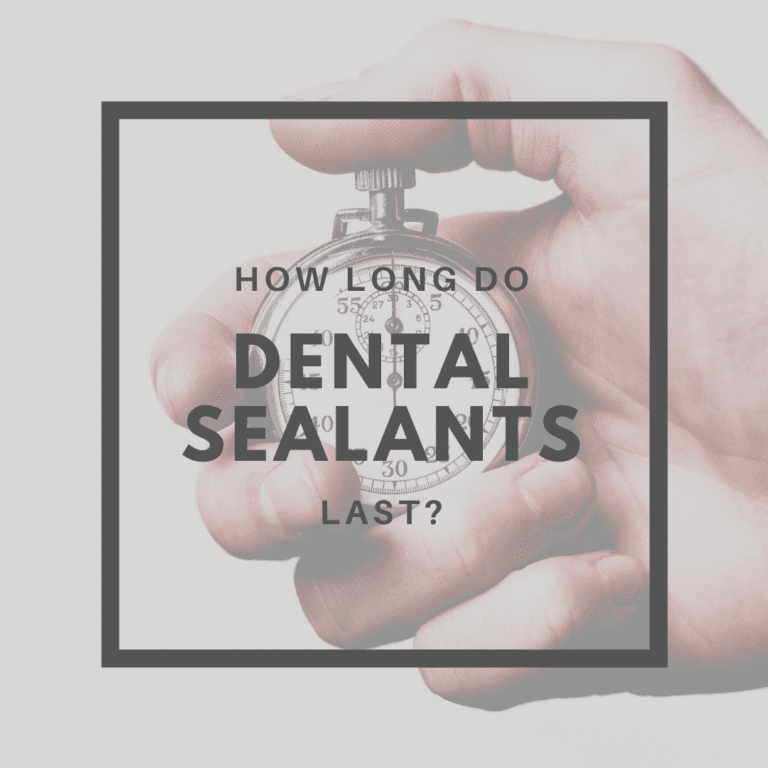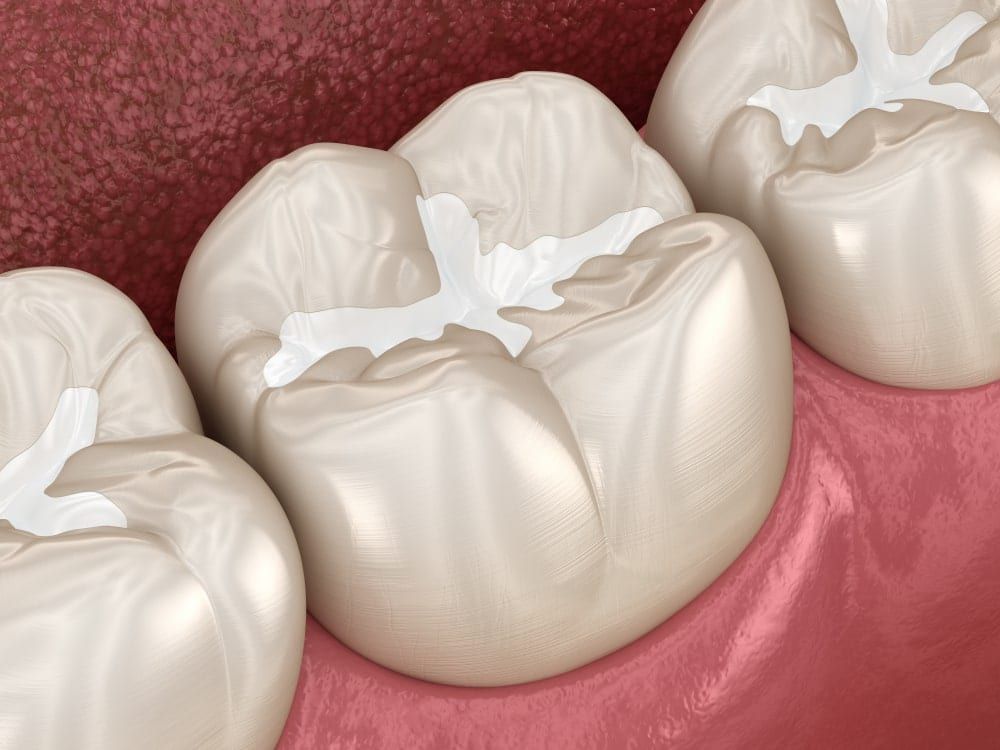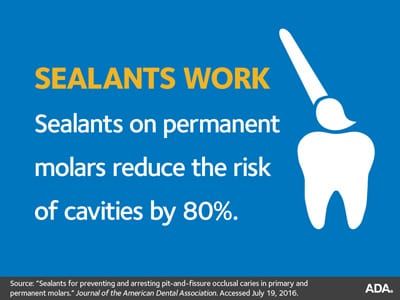How Long Do Dental Sealants Last?

Your family dentist is dedicated to helping you and your family maintain your oral health by preventing common dental issues such as tooth decay and gum disease. As such, they offer many preventative procedures designed to strengthen your enamel or repel the bacteria that cause responsible for tooth decay and gum disease. One common preventative treatment is known as dental sealants.

Dental sealants are thin coatings of composite resin that are applied to the teeth in order to seal the tooth and protect it from harmful bacteria. Because they are made from composite resin, they can be blended to the color of the tooth and will not be immediately visible. Additionally, sealants are generally applied to the chewing surfaces of molars since their highly textured surface is a common location for cavity development.
Once they are applied to the surface of the teeth, sealants can safely remain on the surface of the tooth for up to 9 years. However, it is important to note that sealants are at their most effective for the first two years, maintain adequate effectiveness through the third and fourth year, and will decrease in effectiveness every year after year four.

For this reason, sealants will need to be checked regularly after they are applied. Usually, this simply becomes part of a semi-annual dental checkup. However, since dental sealants are generally used for children, patients with special needs, or those with a physical impairment, it is often up to a caretaker to ensure proper dental exams are performed.
The reason why it is important to have dental sealants regularly examined is simply because they can become worn down or damaged over time. When you consider the fact that dental sealants are undergoing the constant force of chewing and grinding, it’s easy to understand how they can possibly become damaged or worn. Not only that, but certain habits can also lead to the faster wearing of dental sealants.
For example, dental sealants applied to a bruxer’s molars will likely not last as long due to the constant force of grinding and clenching the teeth together. Additionally, people who regularly eat excessively hard or crunchy foods may also wear down sealants faster. Getting a mouth guard and limiting the consumption of hard foods can increase the lifespan of the sealant.
Sealants will need to be replaced when they wear down because they are no longer effective. In some cases, a worn sealant can allow bacteria to become trapped between the tooth and the sealant. This will ultimately cause tooth decay, which is counterproductive to having a sealant placed. To prevent this, regular dental exams ensure the sealant is still in good condition.
Overall, dental sealants have a varying lifespan depending on your diet and oral habits. While they are most effective in the first two years, they may need to be replaced after this. However, they may also be able to remain safely on the teeth for 4-9 years if they are in good condition. Ultimately, you will need to discuss what your dentist recommends for your individual case.

Dr. Scott T. Simpson graduated from the University of Florida College of Dentistry while participating in the Health Profession Scholarship Program through the United States Air Force. Following graduation, Dr. Simpson served three memorable years in the USAF at Malmstrom Air Force Base in Great Falls, Montana. He then practiced for nine years in the Orlando area before moving to the beautiful city of Tigard and starting Appletree Dentistry.



